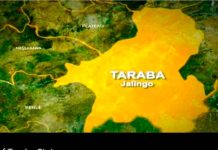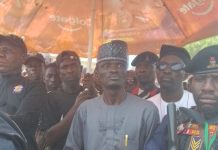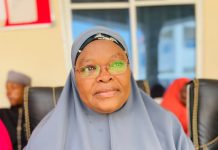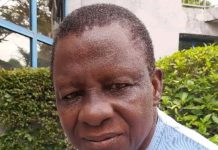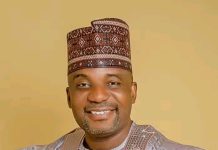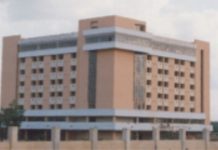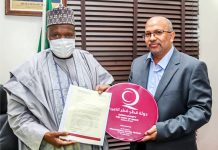WHAT NIGERIA SHOULD LEARN FROM KANO STATE
In spite of the global economic recession which is dragging some citizens into abyss of poverty, Kano State’s Abba Yusuf has adopted some creative measures, using the agriculture sector window, to stabilize the socio-economic well-being of rural dwellers. This is an example to emulate, writes WILLIAMS AYOOSO.
The vicissitudes of global economy have continued to create a negative impact on the socio-economic situation of many nations. This untoward development continues to push economies of some nations to the thresholds of abyss, dehumanizing people’s quality of livelihood, thereby diminishing the hope for a better future.
However, some spirited individuals, have activated the policy instruments in their leadership positions to ensure that such a grave socio-economic calamity, which in most cases snowball into humanitarian situations, do not befall the people that are within the territorial scope of their leadership. The Governor of Kano state, His Excellency, Alhaji Abba Yusuf is one of those leaders.

Despite the pressure of governance and competing services delivery demands of the people that resonate from different sectors of the economy, the governor has evolved a creative approach to ensure that, the nerve of ruler economy of the people do not collapse. It is therefore a deliberate policy that what some might describe as a state of emergency, is being role out in the state’s agriculture sector, to blossom the state’s rural economy.
At present, government is aggressively addressing key areas that have direct bearing on the lives of the people, including opening of access roads, deployment of technology on agricultural activities and boosting the commercial prospects of the people through the creation of markets that have the potentials to boost and encourage global trade.
The Kano State Agro Pastoral Development Project (KSADP) under the leadership of Engineer, Engr. Zaharaddeen Hamisu, is one of those platforms that are driving the template of this agriculture development plan. One of these iconic projects is the Dawanau International Grains Market in Tofa Local Government Area. The concept is to boost all areas of agriculture, particularly the value chain of crops and livestock. Engr. Zaharaddeen Hamisu, told newsmen that the intervention is a 90$ million project that would span a period of five years. He told newsmen that were in Dawanau to see things for themselves.
Under the project, Hamisu said, the Kano state government is contributing 5$ million while the Islamic Development Bank, Lives Livelihood Fund (LLF) and other partners are sponsoring the rest of the funding. Through the Kano State Agro Pastoral Development Project, the state government has been able to provide 4kms of surface dress roads within the market, drainage channels and solar lights that have made business activities in the market to run 24hours, the project engineer said.
“The Dawanau International Market is the biggest grains market in the Sub-Saharan Africa but was hitherto confronted with many challenges, including lack of access roads for movement of grains and livestock especially during rainy seasons as well as security challenges. But all of these challenges have been tackled by closing the infrastructural gap,” Hamisu said.
The gains of this novel initiative are being harnessed as the benefiting communities have refused to hold back their feelings.
“For over 30 years this market has never been like this until the Abba Yusuf government came on board, and you can see the changes. Since this project was launched, it has never stopped. You can see the transformation. You can see the trucks and other vehicles loading and leaving, and this will continue throughout the night because of the streets’ solar lights and police presence.”
Alh. Baba Wawu, Deputy Chairman of the market traders told newsmen who were in the market to see things themselves.
Governor Abba Yusuf also began the expansion, repair and upgrade of the Watari Irrigation Project in Bagwai Local Government Area, the project, according to the Project Manager, Muhammad Tijjani Adam, has gulped N4.5 billion, as about 500 hectares of farmland will be activated. The project is to enhance more participation of farmers in dry season cultivation. N314 million is being expended for the repair of the damaged sections of sectors 1 and 2 reservoirs. Water is released from the Watari Dam to the reservoirs occupying a swath of about 917 active hectares of farmlands. The reservoir 1 alone, when upgraded will provide 10 million cubic litres of water for distribution through canals, Muhammad Tijjani Adam, revealed. Under the irrigation project review, new water canals have been constructed to supply the additional 500 hectares of farmlands that stretch 10 kilometers in various directions. The crops grown include onions, guinea corn, lettuce, rice and cucumber, which are doing well. Here too, the impact is impressive. Just like the Chairman of Watari Water Project Farmers Association, Ibrahim Sani, said during his interaction with newsmen, “This has reduced the migration of people from the area, especially the youth, to Kano city.
It is heart-warming to note that Kano state government is not limiting its foresight on the dietary needs of the people. It is exploring a global business opportunity where the local population will rub shoulders with their equals on the global market environment. It is in this direction that the state is creating a business template powered by technology, for Kano state animal traders to start exporting processed meat, instead of the usual live ruminants like cows, sheep and goats. Under the project focus, beef, mutton and chevon would be processed, preserved and taken in large commercial quantities to Abuja FCT, the southern region and foreign countries for sale.
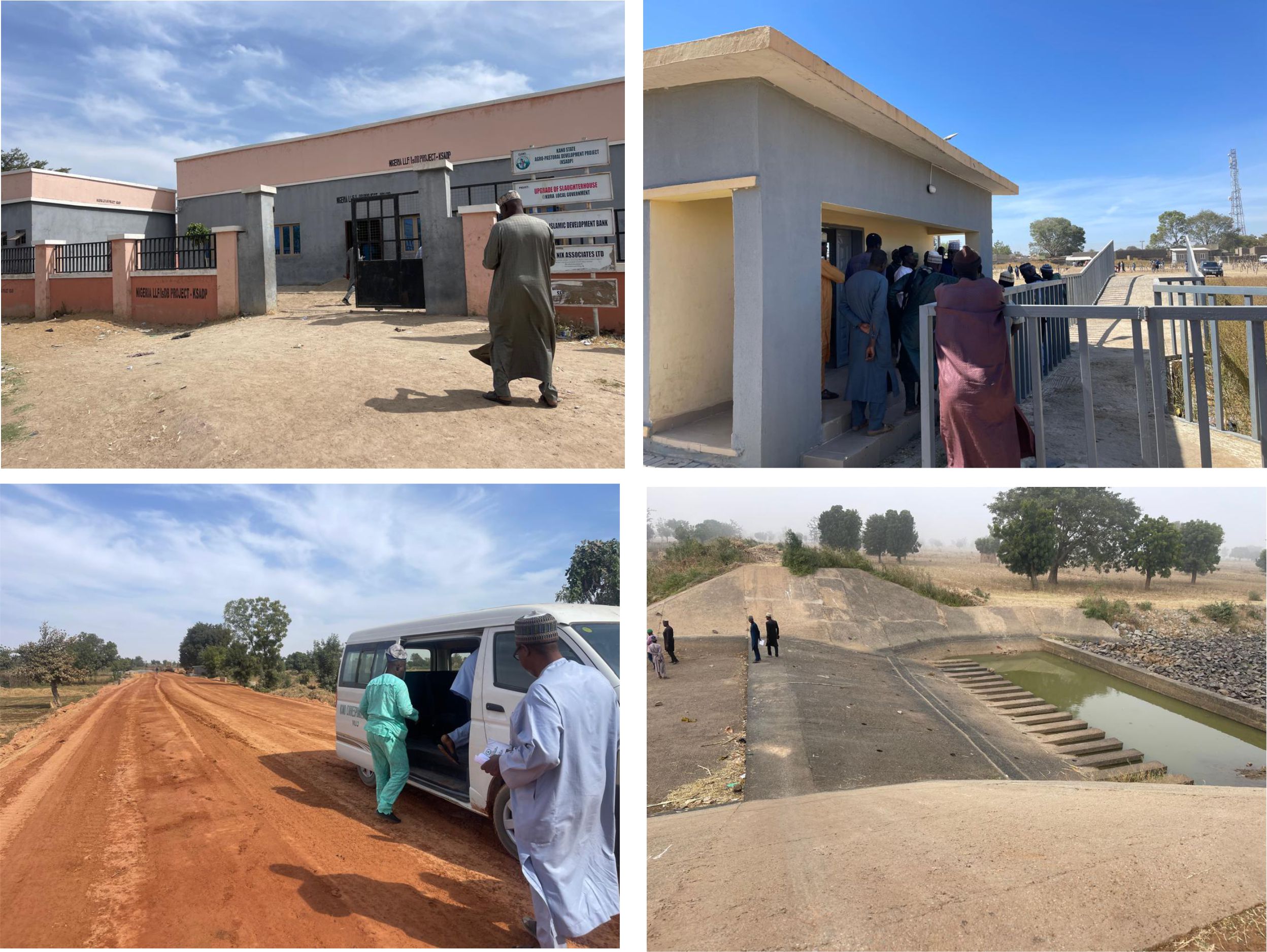
To achieve this novel economic feat, the state, in collaboration with the Islamic Development Bank, Lives Livelihood Fund (LLF) and other partners has constructed slaughterhouses across 20 of the 44 local government areas of the state.
According to the Sarkin Power of the Kura Slaughterhouse in Kura Local Government Area, Alh. Ubale Tantabara, about 10 to 40 cows and other ruminants are being slaughtered on daily basis. Engineer, Engr. Zaharaddeen Hamisu, said each of the slaughterhouses has been built at the cost of N80 million, totalling N1.6 billion for the 20 abattoirs.
The slaughterhouses are equipped with solar powered boreholes for constant supply of water for proper hygiene of the place. There are also solar fans for full ventilation. Each of the slaughterhouses has three offices -a power room, Sarkin Power’s office and a cold room for storage of unsold meat. Outside the slaughterhouse there is the business of drying animal skins and dung for various purposes.
As if these are not enough, the state with the support of Agro Pastoral Development Project (KSADP), supported by the Islamic Development Bank (IsDB) has embarked on the project to construct veterinary clinics and milk collection centres at all the cattle markets across the state. Already, five major milk collection centres have been built equipped in milk producing communities. One of them is Falgore Milk Collection Center, located at Falgore Cattle Market Rt in Doguwa local government area. Each of the milk collection centres is equipped with 550ltrs milk storage tank and its accessories.
Worldview Magazine checks reveals that the centre also has an office, a solar-powered borehole, toilet facilities and a veterinary clinic, all provided with solar lights. The centre, which will soon be officially launched, is already producing over 20,000 litres of milk daily. Nazifi Ado Yakubu -the veterinary doctor lauded the state government for ensuring regular vaccination of the cattle against diseases that could kill them. Munir Madaki, who is the Sarkin Kasuwa Kara Falgore, collaborated the veterinary Doctor’s assertion, when he told newsmen that the community now vaccinates thousands of cows on every market day, therefore, generating millions of Naira as revenue.
“This intervention has also empowered Fulani youths, who were previously engaged in nefarious activities. Today, hundreds of them are involved in milk collection business, selling dairy products directly to companies and exporting them,” Munir Madaki emphasized.
In Africa, agriculture, especially the type that is powered by rural infrastructural built up, is undoubtedly the nexus of economic stability. In the face of glowing recession, where many states in Nigeria are being overwhelmed by the lingering fangs of economic decline, the Kano state government, under His Excellency Alhaji Abba Yusuf, is exploring the Agric sector window to stabilize the socio-economic condition of the rural population.
Nigerian leaders, especially state governments, should learn from Kano State’s Abba Yusuf.











